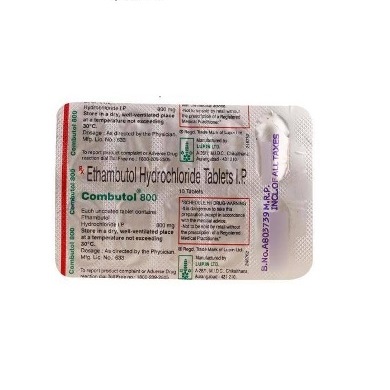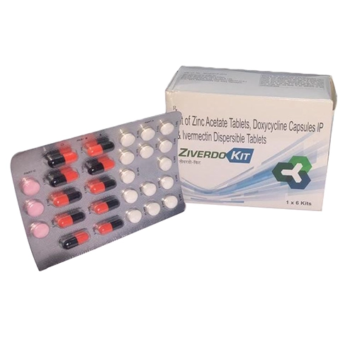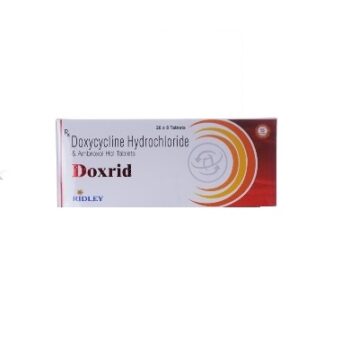Combutol 800 mg
Combutol 800 mg, a medication used in the treatment of tuberculosis, has specific drug interactions to be aware of. Concurrent use with antacids containing aluminum hydroxide may decrease Combutol’s effectiveness. Additionally, combining it with other drugs that affect the liver, such as rifampicin, can lead to potential liver toxicity.
Moreover, medications like theophylline and warfarin may have altered levels in the blood when taken alongside Combutol, necessitating close monitoring. Patients should inform their healthcare provider about all medications they are taking to prevent adverse interactions and ensure the efficacy of their tuberculosis treatment regimen.
Uses of Combitol 800 mg
Combutol 800 mg, an essential medication for combating tuberculosis, necessitates careful consideration of potential drug interactions. Co-administration with aluminum hydroxide-based antacids may compromise its efficacy. Concurrent usage with hepatoxic drugs like rifampicin poses a risk of liver toxicity.
Furthermore, Combutol’s interaction with medications such as theophylline and warfarin can lead to fluctuating blood levels, mandating vigilant monitoring. Patients must communicate their complete medication history to healthcare providers to mitigate the risk of adverse reactions and ensure the effectiveness of their tuberculosis treatment regimen.
How does it work?
Combutol 800 mg exerts its therapeutic effect by inhibiting the synthesis of essential components in the cell wall of Mycobacterium tuberculosis, the bacteria causing tuberculosis. Specifically, it targets the synthesis of arabinogalactan and mycolic acids, crucial for the structural integrity of the bacterial cell wall.
By disrupting these processes, Combutol impedes the growth and reproduction of the tuberculosis bacteria, ultimately leading to their death. This mechanism of action makes Combutol an integral component of tuberculosis treatment regimens, aiding in the eradication of the infection and promoting the recovery of affected individuals.
How to use Combutol 800 mg?
Combutol 800 mg should be taken orally with a full glass of water, preferably after meals, to minimize gastrointestinal discomfort. It’s essential to adhere strictly to the dosage and duration prescribed by a healthcare provider. Patients should never adjust the dosage or discontinue the medication without consulting their healthcare provider first. It’s crucial to complete the full course of treatment, even if symptoms improve, to prevent the development of drug-resistant tuberculosis strains.
Additionally, patients should avoid consuming alcohol while taking Combutol, as it may increase the risk of liver toxicity. Regular monitoring by a healthcare provider is necessary to assess treatment efficacy and detect any adverse effects promptly.
Benefits
Combutol 800 mg offers a multitude of benefits in the treatment of tuberculosis. Its potent antibacterial action targets Mycobacterium tuberculosis, effectively inhibiting bacterial growth and promoting the eradication of the infection. By impeding the synthesis of essential components in the bacterial cell wall, Combutol helps halt the progression of tuberculosis and prevent its spread.
Additionally, Combutol’s oral formulation and convenient dosing regimen enhance patient compliance and treatment adherence. Moreover, its inclusion in multidrug therapy regimens contributes to improved treatment outcomes and reduced risk of drug resistance. Overall, Combutol plays a crucial role in combating tuberculosis and restoring patients’ health and well-being.
Side effects
While Combutol 800 mg is effective in treating tuberculosis, it may entail certain side effects. Common adverse reactions include gastrointestinal disturbances such as nausea, vomiting, and abdominal discomfort. Patients may also experience dizziness, headache, or blurred vision. Additionally, Combutol can lead to hepatotoxicity, manifesting as jaundice or liver enzyme abnormalities.
Rare but serious side effects include peripheral neuropathy, optic neuritis, and hypersensitivity reactions. It’s essential for patients to promptly report any unusual symptoms to their healthcare provider. Regular monitoring is crucial to detect and manage adverse effects, ensuring the safe and effective use of Combutol in tuberculosis treatment regimens.
Precautions
When using Combutol 800 mg, certain precautions should be observed to ensure safe and effective treatment. Patients with a history of liver disease or impairment should exercise caution and undergo regular liver function tests during therapy. It’s important to avoid consuming alcohol while taking Combutol, as it may exacerbate liver toxicity. Patients should also be monitored for signs of peripheral neuropathy, such as numbness or tingling in the extremities.
Additionally, Combutol may interact with other medications, so patients should inform their healthcare provider about all prescribed and over-the-counter drugs they are taking. Adhering to these precautions helps minimize the risk of adverse effects and ensures successful tuberculosis treatment.
Storage
Combutol 800 mg should be stored at room temperature, away from moisture and light. Keep it out of reach of children and pets. Avoid storing Combutol in the bathroom or kitchen where humidity levels may fluctuate.
Conclusion
Combutol 800 mg is a vital medication for the treatment of tuberculosis, offering potent antibacterial action against Mycobacterium tuberculosis. While effective, it’s essential to adhere to prescribed dosages and precautions to minimize the risk of adverse effects.
Regular monitoring by healthcare providers is crucial for ensuring treatment efficacy and patient safety. By following these guidelines, Combutol contributes significantly to the successful management of tuberculosis and the restoration of patients’ health.











Reviews
There are no reviews yet.